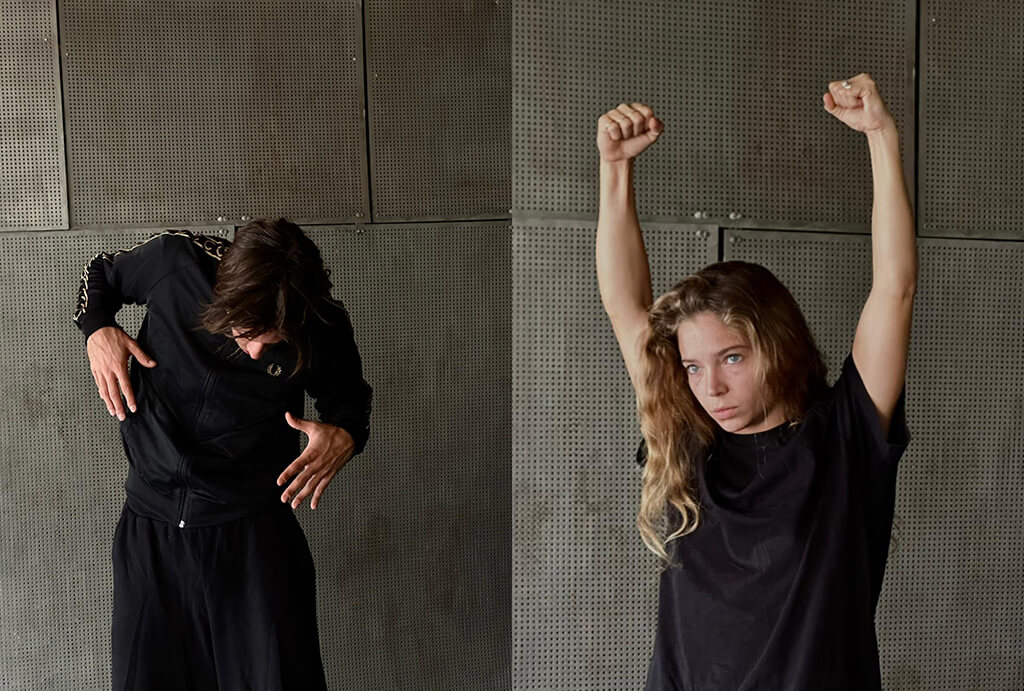Saturday October 4th 2025
20:00, Free Entrance
Open presentation by Apolvere (Artistic Residency program 2025)
“Sull’uscio”
Sull’uscio is the title of an ongoing research project by Apolvere, developed within the framework of performing arts. The collective began this exploration during a brief one-week residency in May 2025, where they initiated work on physical movement, soundscapes, musical composition, and text. Currently, in collaboration with Svesda (Santi Perez), the company is continuing its research with a two-week residency at Akropoditi Dance & Performing Arts Centre.
At the core of this new work lies an interest in the principles of recycling, resisting, and insisting. These concepts serve as guiding coordinates across multiple layers of the process. They shape the company’s approach to movement, spoken and recorded text, and musical composition. Conceptually, they also frame the project’s engagement with the theme of resistance in the context of contemporary European politics and broader Western policy.
Duration: 20-30΄
Artist in Residency
21/09/25 – 05/10/25
Performing arts
Title of the project: “Sull’uscio”
Italy/Spain
Apolvere is an emerging dance/performance duo created and co-directed by Arianna Bonacina and Martí Ramis Muñoz. They are coming respectively from Italy and Spain and they met in their education in Salzburg. During their staying in Austria, they started creating together after realising they shared a common vision for scenic art. Their work is centred on creating fragmented realities where detailed dynamics of human actions and interactions are analysed and portrayed through the use of different medias. They mainly treat topics that have solid connection with the socio-political context they come from. This starting point generates a base for transversal reflections as they believe that art forms are deeply interconnected with societies and politics. Their long-term goal as a duo would be to be able to bring their work in different contexts as a way to open up spaces of confronting and discussing about cultural baggage and its implications in ones’ approach to collectivity.

